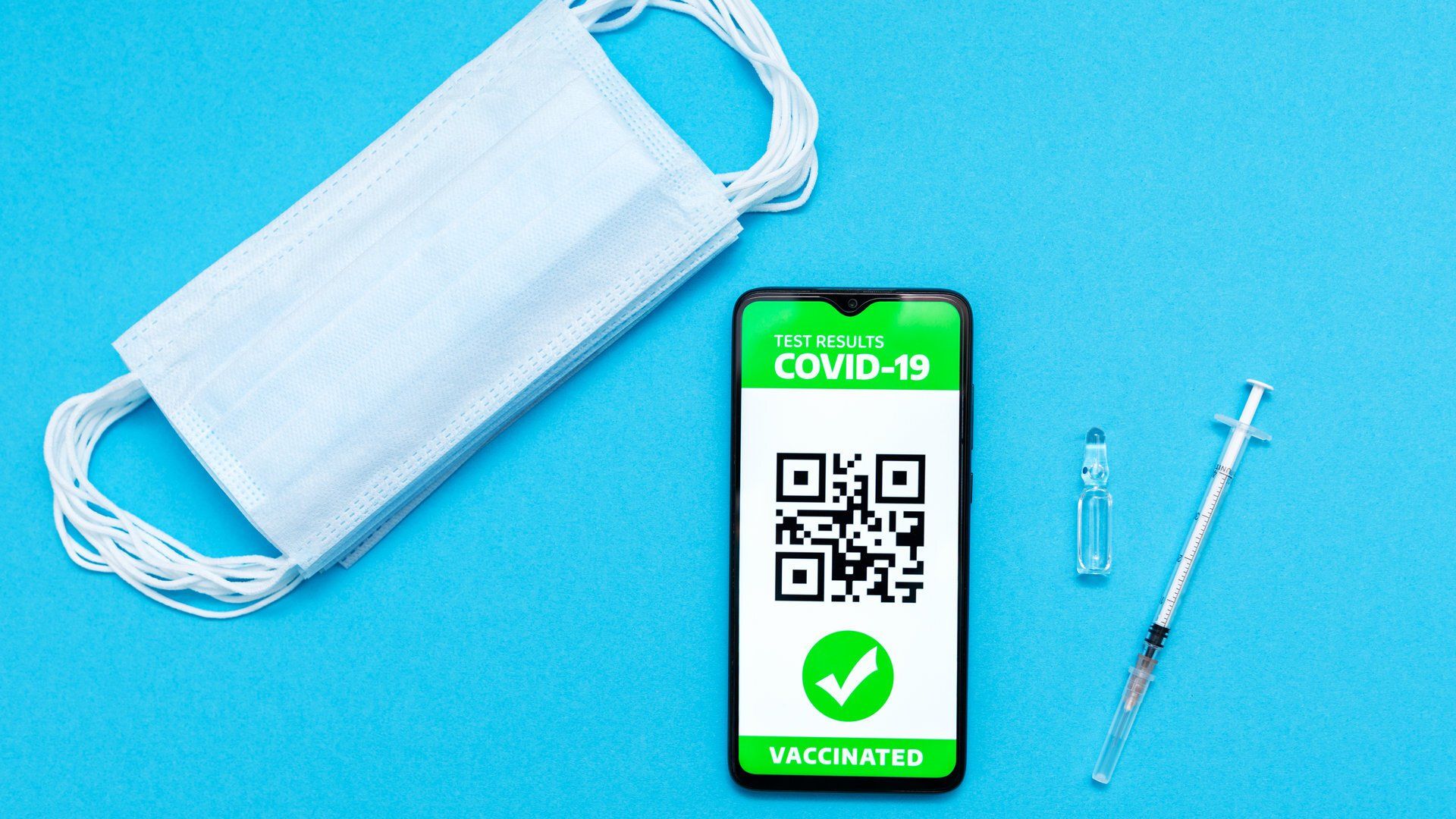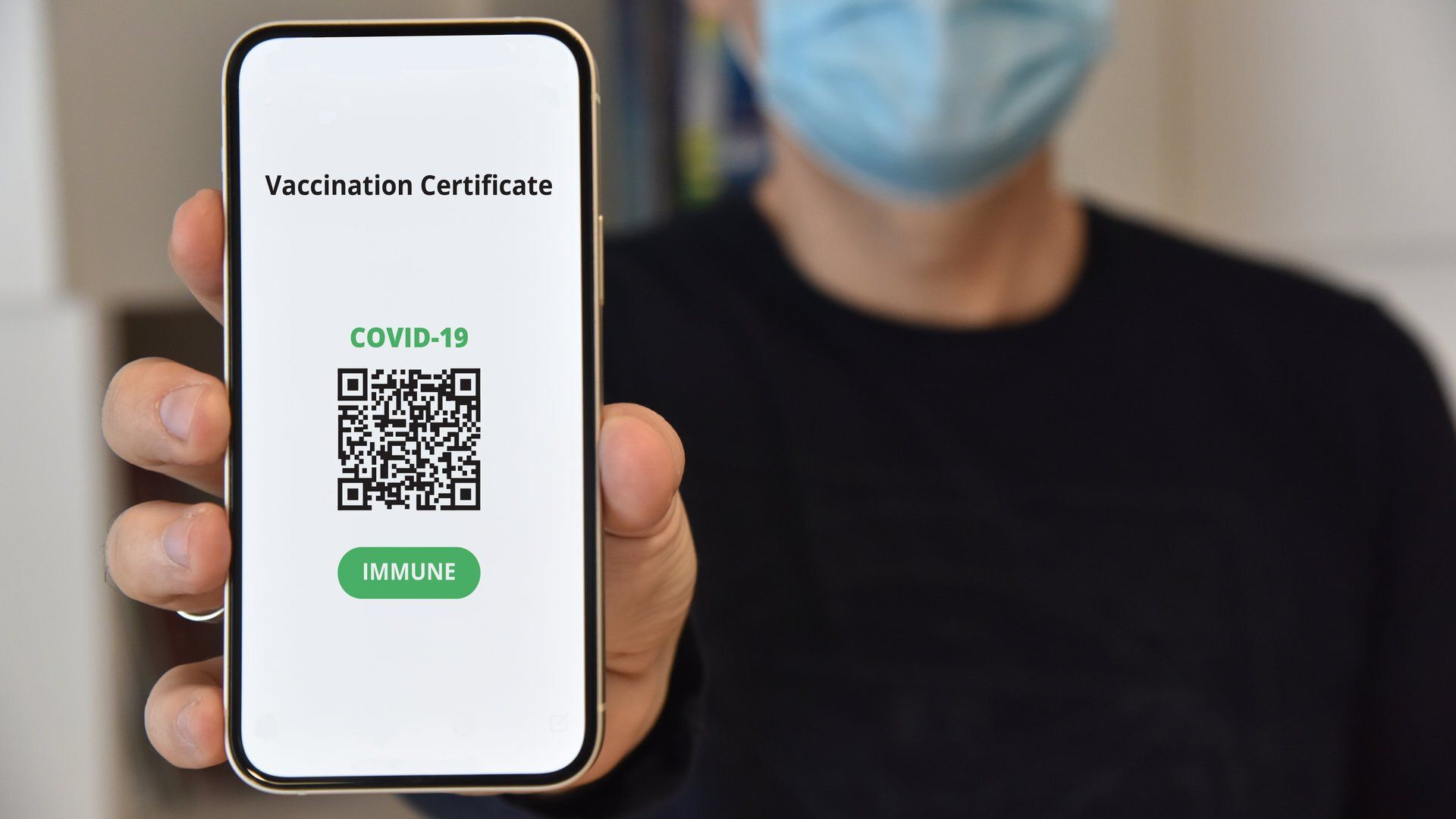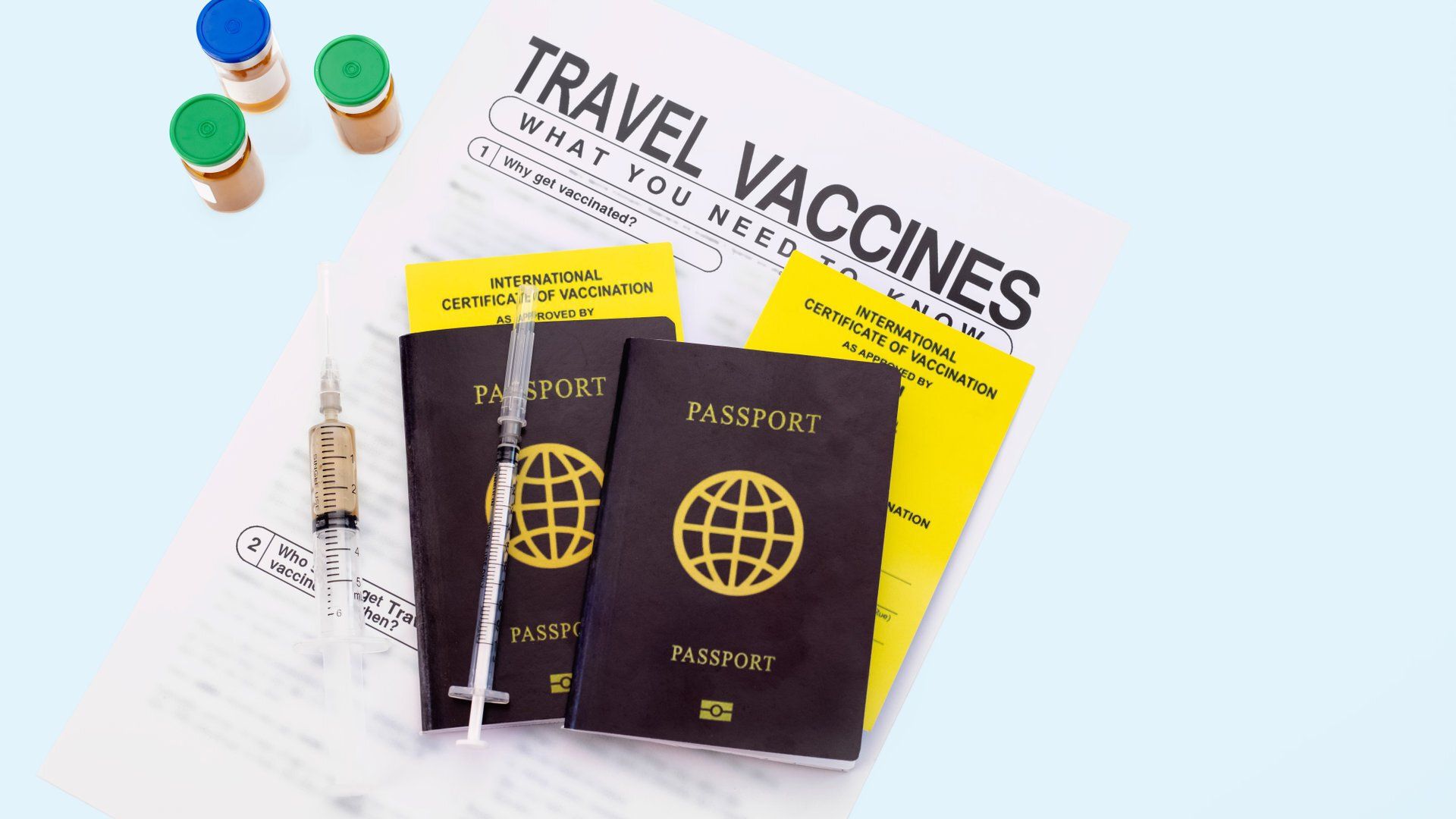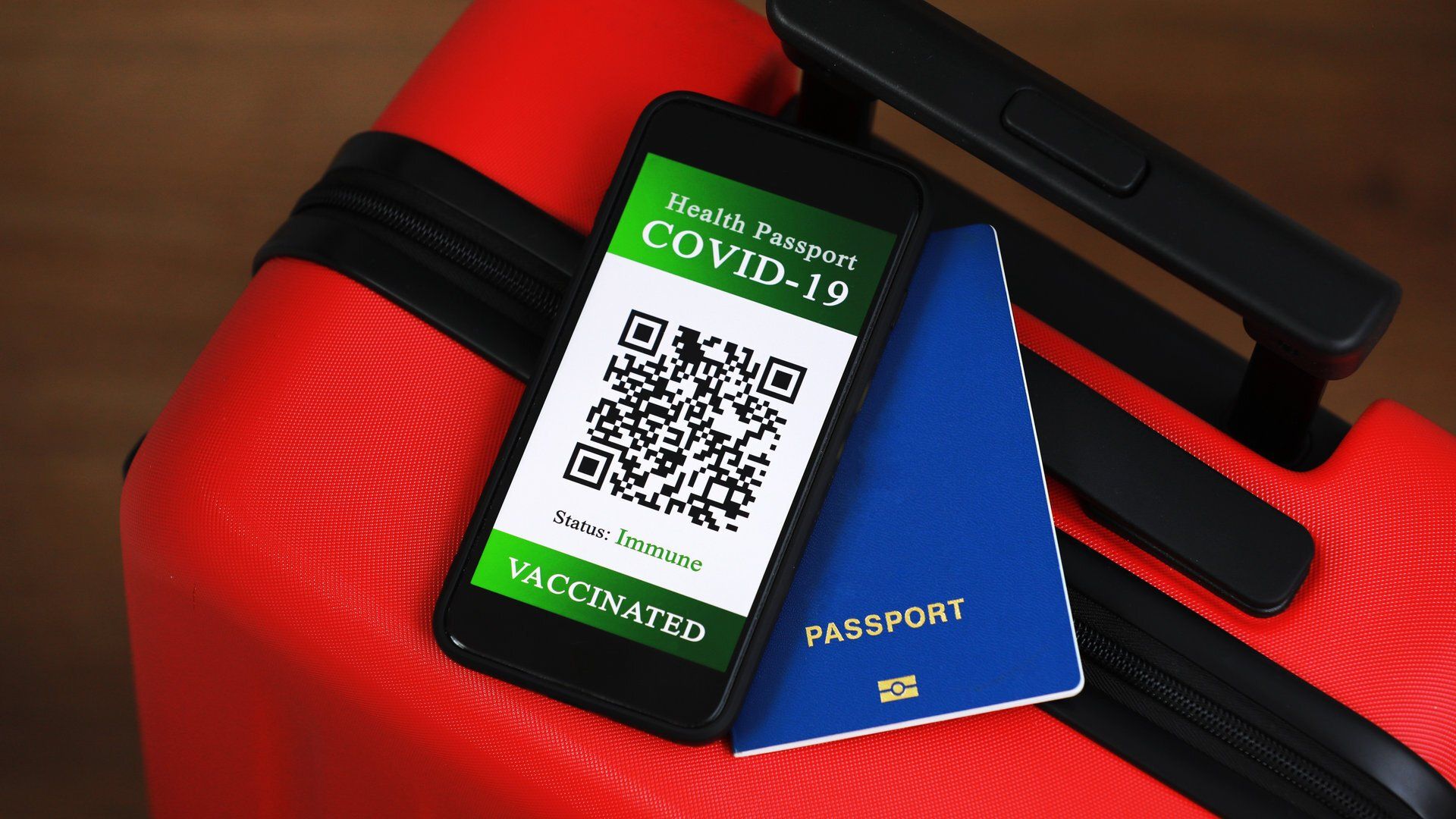Travel Vaccines, CDC Recommendations, & Staying Safe Abroad
In late December of 2019, clusters of ill patients started to experience unwanted symptoms in Wuhan, China – these were the first known cases of COVID-19. By mid-January of 2020, the first case was reported in the United States and it was deemed a pandemic by mid-March.
As of April 2022, there have been over 505 million confirmed cases of COVID-19 around the world and it has claimed the lives of over 6.2 million people globally. In response to the growing concern and rising hospitalization rates, various vaccinations have been approved by the FDA.
In fact, there have been over 11.3 billion vaccine doses administered since the start of the pandemic and that number continues to grow. The vaccine has become a major preference for those that wish to travel, allowing them to travel with confidence and reduce the risk involved.

What Are Travel Vaccines?
For some people, getting vaccinated before traveling is nothing new. In fact, it’s required in some cases. Sure, a COVID-19 vaccine isn’t mandatory before traveling, but it certainly helps and is recommended by most health professionals – but it’s not the only vaccine you should consider.
Travel vaccines, also referred to as travel immunizations, are specialty vaccines designed to keep travelers safe from illnesses they might be exposed to while in foreign countries or areas. This is especially true with potential exposure to an illness not commonly found at home.
A travel vaccine is administered by a shot, usually in the arm. It exposes the body to dead or severely weakened virus bacteria, which allows the immune system an opportunity to prepare itself for a potential attack. That’s not to say an attack would happen, but it would be ready for it.

What is a Routine Vaccine for Travel?
A routine vaccine is what most people are already aware of. They’re the vaccines you received as a child and the ones you continue to receive periodically (sometimes annually, sometimes every 10 years) as an adult. They aren’t necessarily required, but they are recommended.
These vaccines are usually recommended based on an individual’s age, current health status, and a variety of other factors. Good examples of a routine vaccine include the flu vaccine, the COVID-19 vaccine, and the tetanus vaccine. Most of them come with booster shots, as well.

What is a Required Vaccine for Travel?
A required vaccine is one that you’re required to get before entering another country. Not all countries have requirements and some might have several requirements, but you will not be able to enter the country unless the requirements are met – in hopes of keeping everyone safe.
Some vaccines might be required in one country, but only recommended in another. It’s important to understand the distinction between the two, but it’s also best to express caution in most cases. One of the few required vaccines in some countries is the yellow fever vaccine.
What is a Recommended Vaccine for Travel?
A recommended vaccine is one that’s not necessarily required when entering a country, but is recommended by trusted health professionals. These vaccines aren’t included in the routine vaccines that we all get periodically, but can keep you safe from certain risks when traveling.
A popular vaccine that’s often recommended when entering a foreign country is a typhoid vaccine. It helps protect the traveler from typhoid fever, a disease that stems from contaminated food and water. Vaccine recommendations depend on your health, age, and other factors.

Common Travel Vaccines to Consider Before Your Trip
There are a number of vaccines that we get on a regular basis, which are known as the routine vaccines. These include COVID-19, flu, chickenpox, Hepatitis A, Hepatitis B, HPV, measles, mumps, Rubella, Meningococcal, Pneumococcal, Rotavirus, polio, tetanus, and shingles.
In addition to those, some of the recommended (and sometimes required) vaccines include Cholera, Hepatitis E, Japanese encephalitis, Rabies, Tick-borne encephalitis, typhoid fever, and yellow fever. You should always consult with your primary care doctor before traveling abroad.
Your doctor might also recommend several different medications when traveling, including medication for traveler’s diarrhea, Malaria, Dengue Fever, and motion sickness. If you believe you might need any of these, don’t hesitate to ask your health provider during your appointment.

How Early Should You Get Vaccinated Before Traveling?
If you plan on traveling abroad or even within the United States, it’s always best to plan ahead of time to ensure you aren’t rushed when getting the necessary or recommended vaccines. In most cases, you should schedule an appointment with your doctor one month before traveling.
Keep in mind that some trips might require the help of a travel medicine specialist – someone who specializes in preparing you for a healthy and safe trip. Even if you’re a last-minute traveler and don’t have one month to spare, contact your primary doctor to see what your options are.

Where Can You Get Travel Vaccines?
There are a wide range of options to consider when getting travel vaccines. At the end of the day, you should follow the direct advice of your primary care doctor. They’ll either refer you to a clinic that can administer the vaccine or they’ll be able to administer the vaccine themselves.
For those that are required or recommended to get the yellow fever vaccine, you’ll need to visit a yellow fever vaccine clinic – you won’t be able to get the vaccine, otherwise. Again, you should speak with your primary care doctor to see if they have a referral before searching online.

Contact Good Samaritan Today!
Are you planning on traveling soon? Are you traveling to an area prone to certain diseases we aren’t normally exposed to in the United States? Do you want to ensure you and your family are safe and healthy before, during, and after your trip? Don’t worry, Good Samaritan is here to help.
Don’t hesitate to contact our office and schedule an appointment with Dr. Shaun Jang, MD. We can’t wait to meet you and are excited to help you have a fun, enjoyable, and healthy trip abroad!



